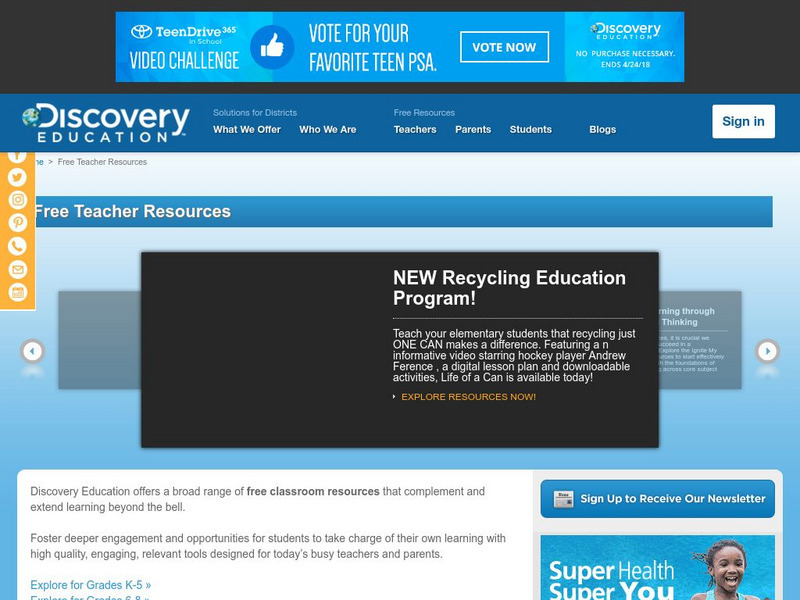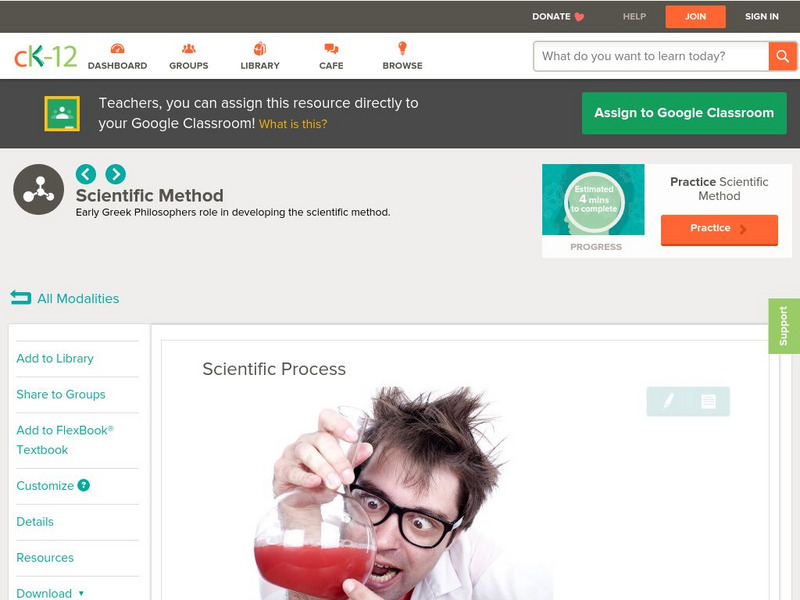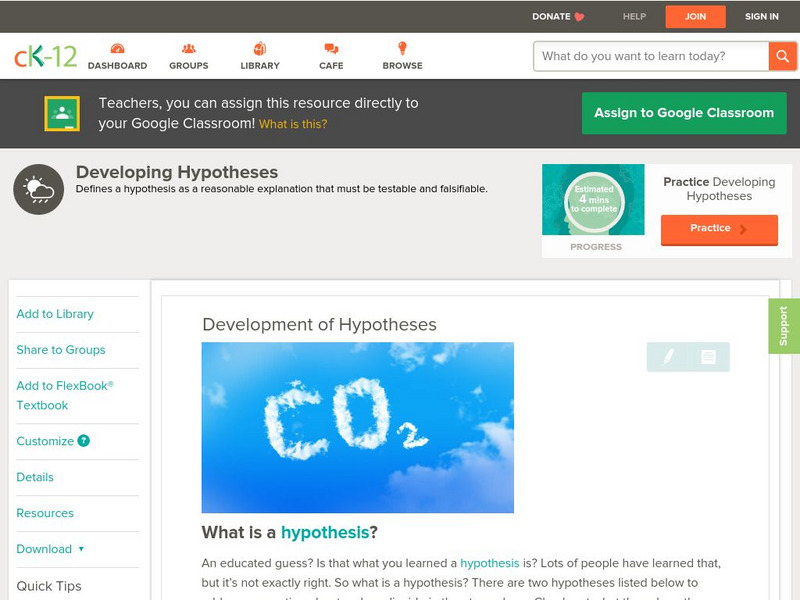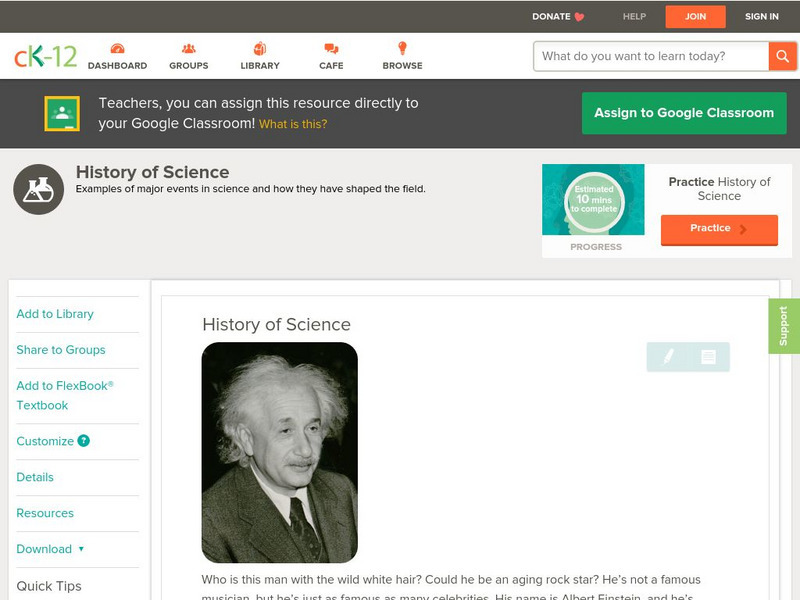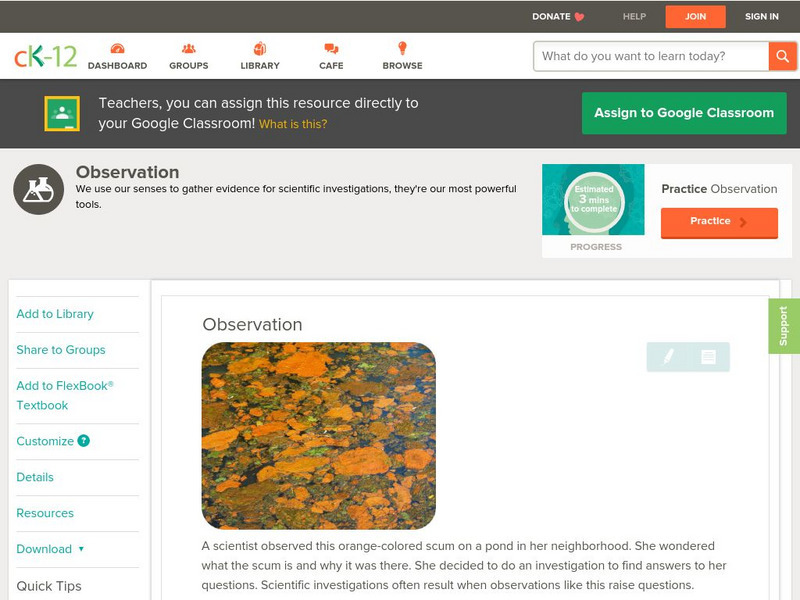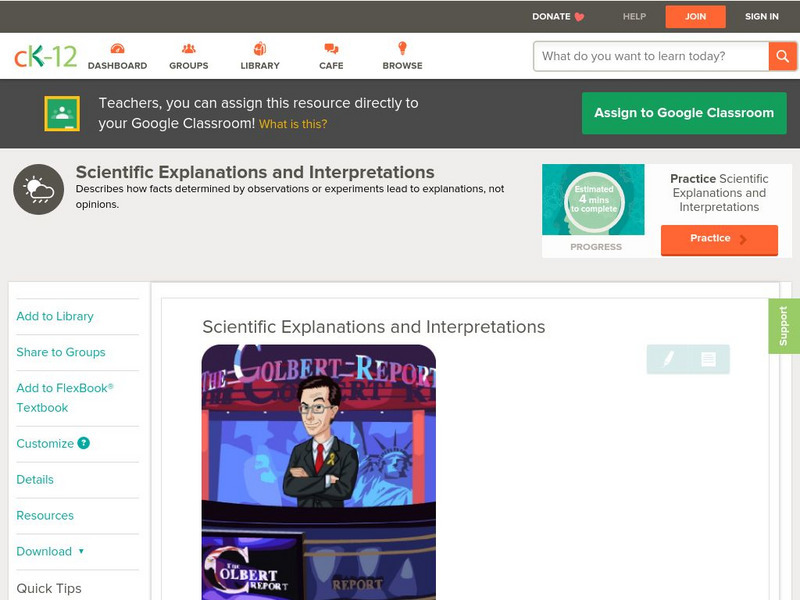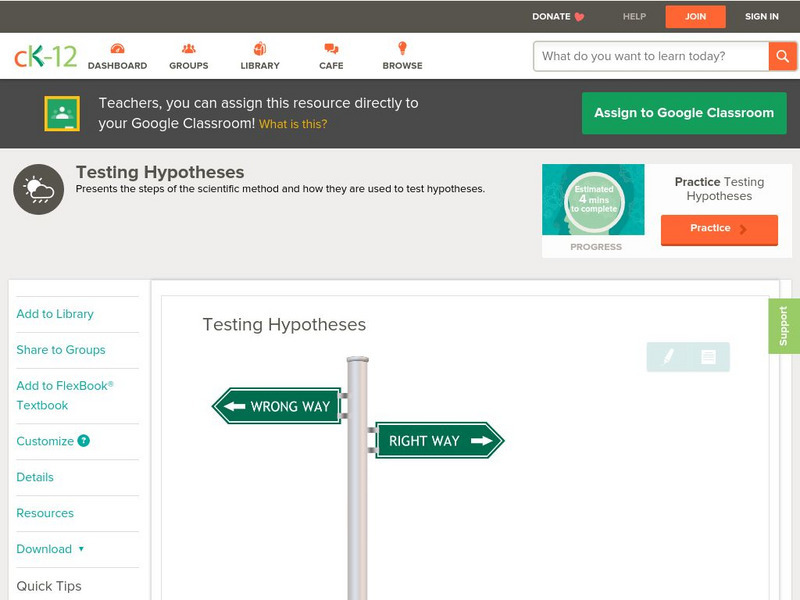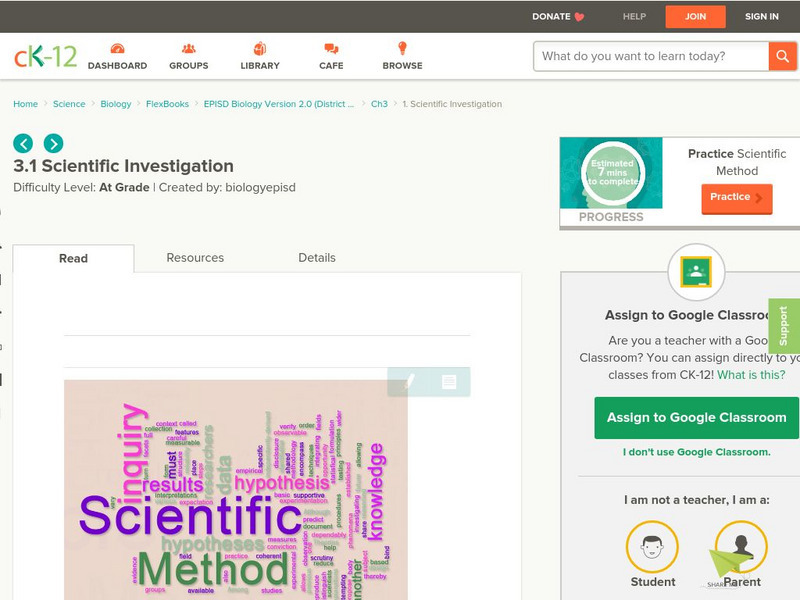PBS
Pbs Kids: Dragonfly Tv Science Fair: Plan
So, you've chosen your topic and done your research, now, you need to plan your investigation. PBS site walks you through some steps to help guide you through the planning process.
Texas Education Agency
Texas Gateway: What Is Physics?: Section Summary
This is a summary of the most important takeaway ideas from Chapter 1: What is Physics? from the TEA Physics text.
Chiral Publishing
Chiral Publishing: An Introduction to Chemistry: Scientific Notation [Pdf]
Learn step by step instructions on how to express numbers in scientific notation. Discover the rules to scientific notation and view several examples of numbers being expressed in scientific notation.
Science Bob Pflugfelder
Science Bob: Growing Bacteria for Science Fairs
Science Bob provides instructions for setting up an experiment to show how to grow bacteria.
Other
Csicop: Field Guide to Critical Thinking
This article, originally published in Skeptical Inquirer, outlines some of the key components of the scientific problem-solving process while addressing the many reasons for the popularity of paranormal beliefs in the U.S. (Published in...
Discovery Education
Discovery Education: Science Fair Central: Science Fair Central
All-in-one science fair resource includes project ideas, sample projects, suggestions for organization, and tips for delivering an outstanding presentation on the day of the fair.
CK-12 Foundation
Ck 12: Chemistry: Scientific Process
[Free Registration/Login may be required to access all resource tools.] Role of investigations in science and the steps of the scientific method.
CK-12 Foundation
Ck 12: Physical Science: Scientific Process
[Free Registration/Login may be required to access all resource tools.] Role of investigations in science and the steps of the scientific method.
CK-12 Foundation
Ck 12: Earth Science: Development of Hypotheses
[Free Registration/Login may be required to access all resource tools.] How to recognize and make good hypotheses.
CK-12 Foundation
Ck 12: Physical Science: History of Science
[Free Registration/Login may be required to access all resource tools.] Explores the evolution of science, major contributions in the history of science, and the scientific revolution.
CK-12 Foundation
Ck 12: Physical Science: Scientific Theory
[Free Registration/Login may be required to access all resource tools.] Nature of scientific theories, examples of physical science theories, and the law of parsimony.
CK-12 Foundation
Ck 12: Physical Science: Scientific Law
[Free Registration/Login may be required to access all resource tools.] Nature of scientific laws, examples of physical science laws, and how scientific laws differ from scientific theories.
CK-12 Foundation
Ck 12: Physical Science: Observation
[Free Registration/Login may be required to access all resource tools.] Observation and its role in scientific investigation.
CK-12 Foundation
Ck 12: Physical Science: Scientific Graphing
[Free Registration/Login may be required to access all resource tools.] Usefulness and types of graphs.
Science Buddies
Science Buddies: Scientific Method Data Analysis/graphs
At the end of your experiment you should review all of the data you have collected. See samples of data analysis charts and graphs. Find out what makes for a good chart or graph using the self-grading rubrics.
CK-12 Foundation
Ck 12: Earth Science: Experiments and Hypotheses Study Guide
[Free Registration/Login may be required to access all resource tools.] This study guide summarizes key points about the scientific method and hypotheses.
Discovery Education
Discovery Education: Science of Everyday Life: Everyday Science of Eggs [Pdf]
A lab where students can investigate eggs and what happens to egg whites after they are beaten. Lesson plan includes teacher background, standards, and a procedure for students to develop their own experiment.
CK-12 Foundation
Ck 12: Earth Science : Scientific Explanations and Interpretations
[Free Registration/Login may be required to access all resource tools.] Presents the relationships of facts, explanations, and opinions in science.
CK-12 Foundation
Ck 12: Earth Science: Testing Hypotheses
[Free Registration/Login may be required to access all resource tools.] Learn the steps of how to test hypotheses.
CK-12 Foundation
Ck 12: Scientific Investigation
[Free Registration/Login may be required to access all resource tools.] This lesson looks at how the scientific method is applied in a scientific investigation, and at the differences between theories and hypotheses in science.
Alabama Learning Exchange
Alex: Bloodstain Pattern Doesn't Lie
Students will formulate a hypothesis about the relationship (linear, direct, indirect, etc.) between the distance a drop of blood falls and the diameter of the splatter it makes. To test their hypothesis, the students will work...
Alabama Learning Exchange
Alex: The Legend of the Mummy's Curse Fact or Fiction?
This is a technology-based, hands-on Biology lesson plan used to introduce the scientific method to students. Students will make a prediction on whether they think the curse is true or false. Students will listen to a podcast describing...
Alabama Learning Exchange
Alex: Questioning Nasa
In this lesson plan students will work collaboratively to explore the "Big Question" that led up to this lesson plan was "Why are there two solid rocket boosters used to launch the space shuttle instead of one with the same amount of...
Alabama Learning Exchange
Alex: Beyond the Earth Part Ii
A continuation of Beyond the Earth Part I. As part of a unit on the solar system, students will choose a component of the solar system to research. Students may use a variety of resources such as the Internet, books, and reference...



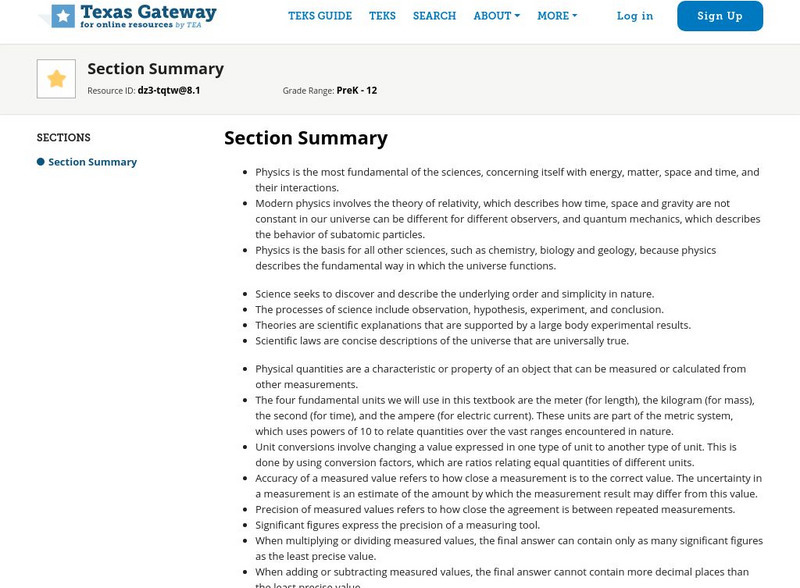
![Chiral Publishing: An Introduction to Chemistry: Scientific Notation [Pdf] eBook Chiral Publishing: An Introduction to Chemistry: Scientific Notation [Pdf] eBook](https://d15y2dacu3jp90.cloudfront.net/images/attachment_defaults/resource/large/FPO-knovation.png)

